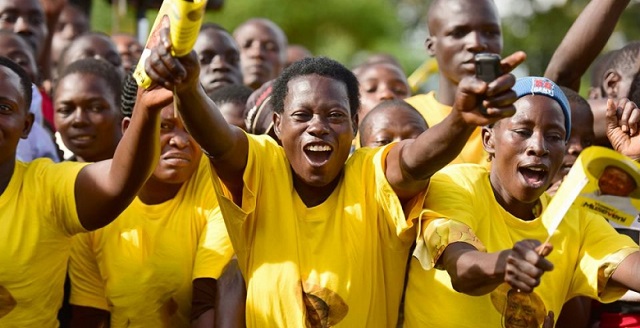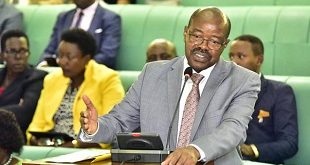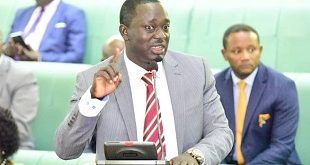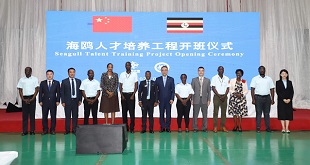
Kampala, Uganda | THE INDEPENDENT | The proposal by the Electoral Commission to ban open-air campaigns ahead of the 2021 campaigns and general election continues to draw mixed reactions from politicians, opinion leaders and media analysts.
The Electoral Commission announced a revised roadmap on Tuesday suggesting that there will be no open-air campaigns in line with the ministry of health guidelines that prohibits mass gatherings in order to stop the spread of the novel coronavirus.
Justice Simon Byabakama Mugenyi, the chairman of the Electoral Commission told journalists that because they don’t have the power to change article 61 (2) of the constitution which commands them to organize elections within 120 days before the expiry of the term of president, parliament or local government, they are pushing ahead with the election although with a number of limitations.
These limitations include using the media as the main avenue through which candidates can reach the electorate. The announcement induced swift reaction with the ruling National Resistance Movement welcoming the idea and the opposition out rightly rejecting it saying that either the Electoral Commission organizes a normal election or it’s postponed.
But to politicians like Ibrahim Ssemujju Nganda, the Kira municipality member of parliament and also the spokesperson of the opposition Forum for Democratic Change, attacking the Electoral Commission on why it’s pushing ahead with an election now would be attacking the wrong person.
But is the proposal by the Electoral Commission to use the media as the means of campaigning even practical? According to the latest Uganda Communication Commission figures of January 2020, Uganda has 26.7 million telephone subscribers as of December 2019. Of these, 6,614,153 have smartphones.
UCC defines this class of mobile phones as multi-purpose mobile computing devices which have stronger hardware capabilities and extensive mobile operating systems which facilitate wider software, internet and multimedia functionality alongside core phone functions such as voice calls and text messaging. It is people with these kinds of mobile phones that regularly use the internet.
Another 85,710 subscribers use fixed internet especially in offices. The UCC figures also show that 17,181,56 have phones with which they can make and receive calls, send text messages and provide some of the advanced features found on a smartphone. The other 3,409,724 have basic phones which can only make calls and send text messages.
Therefore, it wouldn’t be far fetched to conclude that it’s only about seven million telephone subscribers who can regularly use the internet and can therefore make use of Facebook, Twitter, WhatsApp and other social media platforms that politicians are able to use for campaigning.
But even for this, Roy Ssembogga a former Makerere University guild president who is also eyeing the Kawempe South parliamentary seat says it has its own limitations such as the over the top tax. Ssembogga who belongs to the People Power movement admits that although they have their niche cutout on social media, it’s not enough to secure victory for their candidate Robert Kyagulanyi Ssentamu aka Bobi Wine.
According to figures still from UCC, Uganda has 1.686,269 TV subscribers. Majority of Ugandans access television through subscription owing to digital migration from analogue to Digital Terrestrial Television. For radio stations, as of the end of 2018, Uganda had 292 licensed radios around the country. However, although some of these radios are licensed, they are not yet operational.
Yusuf Serunkuma, a PhD student at Makerere University Institute of Social Research observes that even radio that is touted as the cheapest and easily accessible means of communication might not also accommodate all the 4 million candidates vying for different seats at different levels.
Ssemujju, a former political editor says that the situation is almost the same with the print media.
Dr Sam Kazibwe, a journalism and a communication lecturer at Uganda Christian University says that Uganda’s media infrastructure is neither sufficient nor ready to handle the enormous task that the Electoral Commission has given it. Kazibwe says in the current situation, the incumbents who enjoy some degree of prominence might end up taking the lion’s share of the available media pace.
Kazibwe further argues that even if the UCC comes up with regulations on how to hold campaigns on radios and TVs by ensuring equity of airtime to candidates, many of these stations are owned by politicians who have interests.
“It will be hard for UCC to police all them to ensure that they are abiding by the set guidelines. It’s going to be a very big challenge for the politicians to use this so-called digital campaigning,” Kazibwe said.
As of whether this election is going to be a cash cow of the struggling media riling from the effects of coronavirus, both Ssemujju and Kazibwe don’t think so. They both argue that Ugandan politicians are too poor to afford to pay for media space. Ssemujju says
Forum for Women in Democracy (FOWODE) as a women’s rights organization advocating for inclusive democratic and governance processes equally observes that the broadcast and online campaigns will alienate a majority of potential women leaders due to limited access to the internet by most Ugandans, the unequal distribution of airtime on broadcast media and the very high costs for purchasing broadcast media airtime.
The group made reference to the Uganda Demographic Health Survey report 2016, which highlighted that men are more likely than women to access all three forms of media including newspaper, television, and radio on a weekly basis.
FOWODE Executive Director Patricia Munaabi says that the Electoral Commission should consider some offline activities in some communities to allow aspiring candidates to hold consultation meetings where candidates can meet their electorates and campaign managers in groups of at least 15 people and also door-to-door consultations while observing standard operating procedures.
Munaabi adds that with the COVID-19 scare still around, the Electoral Commission needs to engage with its sister agencies like Uganda Communications Commission (UCC) and the Uganda Broadcasting Council to ensure that all candidates are given equal and cost-efficient broadcast airtime and lift the ban on megaphone community radios commonly known as ‘bizindalo’ to enable those with less financial muscle to access the electorate.
*****
URN
 The Independent Uganda: You get the Truth we Pay the Price
The Independent Uganda: You get the Truth we Pay the Price



Ladies and gentlemen,
We are all entitled to our opinions. My concern however, is the selfish motive being exhibited versus the common good that is the intention of the guidelines by the EC that are meant to safeguard life of Ugandans. It is very well known by those who care to know, that the covid-19 pandemic is spreading like bush fire with the pandemic now reaching the 3rd level category, an explosive stage. All sensible Ugandans at the moment should be doing everything that minimises the spread of the covid-19 disease among Ugandans, rather than only thinking about their narrow interests: my job, my seat, my candidate, my party, my allowance, my…….! Whoever is putting the issue of campaigning ahead of the lives of Ugandans is a wizard and should be held in contempt.
Final question: is it true that elections can not wait? Does it not make sense to have Ugandans stay alive and later participate in campaigns and elections rather than having Ugandans participate in the electoral process, get infected and later die of the covod-19 disease??? Ladies and gentlemen, life is more valuable. Let’s stop being selfish, and think of the common good of all!!